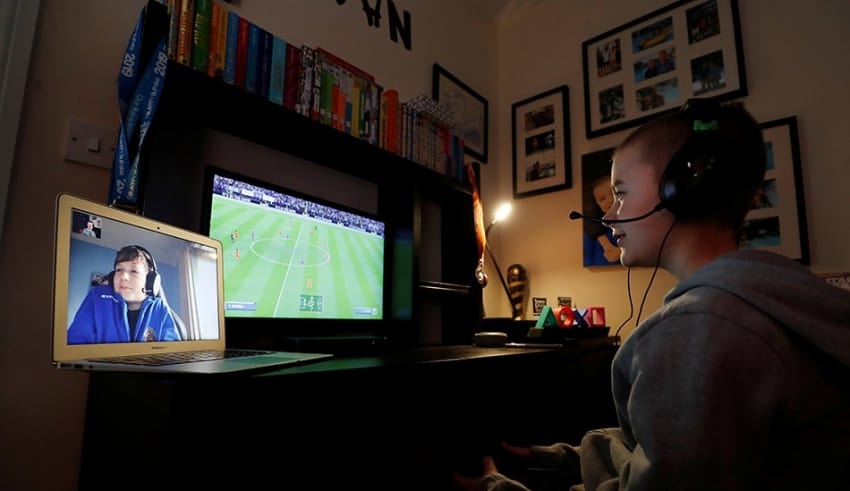
Last updated on May 13th, 2021 at 05:43 am
Before the coronavirus pandemic saw the cancelation of their La Liga match, two Spanish footballers took care of “FIFA 20,” a stadium-sized virtual audience watched online.
The massive digital crowd is part of a remarkable boom for the digital gaming industry, as large numbers flock to online platforms for relaxation, entertainment and interaction with the “real world” suddenly falling apart.
Real Betis forward Borja Iglesias kicked the winning goal in the 6-5 battle against Seville, which was broadcast on popular online video game site Twitch, using his own digital likeness.
This took place at the same time as the initial derby was planned until Spain’s first tournament was postponed as part of isolation steps that also saw 46 million people in the world being mostly confined to their homes.
Cases of COVID-19 infection have been documented by almost every country across the globe, with frenzied attempts to contain the disease prompting the near total shutdown of some of the world’s largest cities.
Online gaming has proven a welcome relief for many people chafing at limits on travel, canceling countless public events and a constant barrage of pandemic news.
The business also promised extra in-game roll-out events to keep housebound players glued to their controllers.
Christian McCrea, a media studies lecturer specializing in games at Australia’s RMIT University, said online gaming groups might “go some way to build the public space that’s been lost” in the wake of the pandemic.
He pointed to Pokemon Go— a mobile game that became a global sensation in 2016 when it attracted millions of people into the streets for a virtual monster hunt— which its creator updated this month to make it easier for users to play at home.
Since a long time, computer games have been blamed for a range of health conditions ranging from recurrent strain injuries to eye problems.
In 2018, the World Health Organization listed gaming addiction as a disorder, the same year China initiated a crackdown on the industry over fears that young people were spending too much time online. But veteran gamers now ironically appear among those best-placed to navigate the pandemic and its impact on everyday life.























